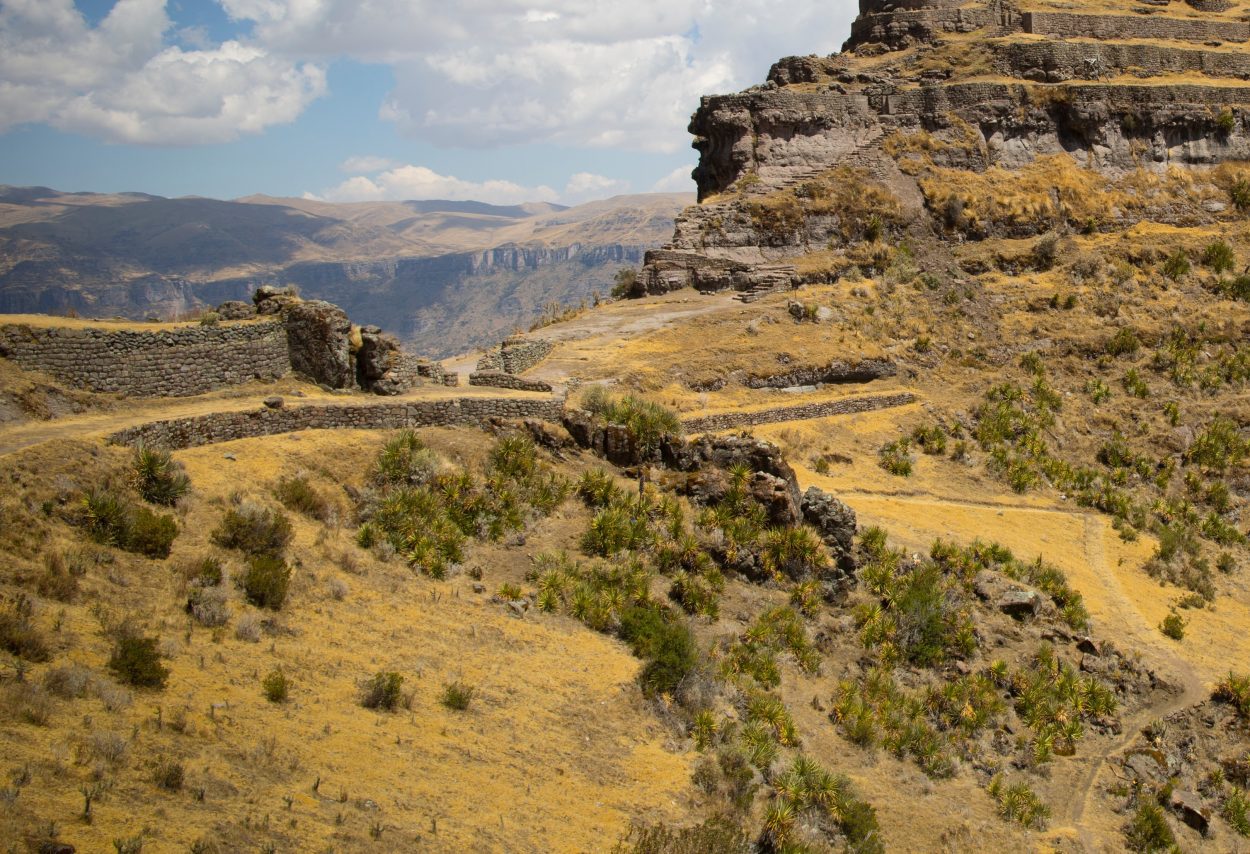Waqrapukara, loosely translated as the “horn fortress” in Quechua is a pre-Inca and Inca site, located in the district of Pomacanchi, in the department of Cusco, Peru.
Waprapukara refers to the topographic outcrop formation of the summit, but has also been called Llamapukara, meaning “fortress of the flame”, and Llaqtapukara, meaning “town barracks”.
Waqrapukara was constructed by the Qanchi ethnic group on a mountain peak overlooking the Apurímac River, located 4,000 metres above sea level.
According to legend, the Qanchi were ruled by T’ito Qosñipa, who fought the Inca on the slopes of Mount Phiñaypampa. The Qanchi were defeated and fled to Waqrapukara, which was placed under siege for 15 days.

T’ito Qosñipa was forced to capitulate, but in exchange for swearing loyalty to the Inca, he and his warriors were spared from execution. As punishment for the Qanchi’s defiance, the Inca selected 100 Qanchi warriors and cut off one ear marking them as “mottoqanchis”.
Waqrapukara has been described as a residence of Inca nobility, but also a centre of astronomical observation, and at the same time a religious centre attributed to the sun, the moon, and Viracocha, the great creator deity in the pre-Inca and Inca mythology.
Waqrapukara consists of a citadel in the middle of a rocky spur, where there are two groups of enclosures that are separated by a large central space. This is surrounded by eight artificial terraces with retaining walls that follows the topography, and a series of enclosures on the east and western end.
Header Image Credit : Adrian Diez Albeniz – Shutterstock





